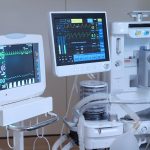The “Microbial Contract Biomanufacturing Market across Type of Biologic, Type of Microbial Expression System Used, Scale of Operation, End User, and Key Geographical Regions: Industry Trends and Global Forecasts, 2020-2030” report has been added to ResearchAndMarkets.com’s offering.
The report features an extensive study of the current market landscape and future opportunities associated with the microbial contract biomanufacturing market. The study also features a detailed analysis of key drivers and trends related to this evolving domain.
Traditionally, microbial cell cultures have been the preferred choice for the production of the variety of biologics, including peptide therapeutics and certain low molecular weight proteins (insulin) and cytokines. Till date, over 60% of recombinant proteins used for therapeutic purposes, are estimated to be produced using microbial expression systems, primarily Escherichia coli. In fact, more than 70 biologics approved by various regulatory authorities, worldwide, are manufactured using microbial fermentation. It is worth highlighting that the growing interest in certain novel biologics, such as antibody fragments and plasmid DNA (with potential application areas in cell and gene therapies, and DNA vaccines), has led to a substantial increase in demand for microbial system-based production. Furthermore, evolutionary advances in manufacturing technologies have resulted in a renewed interest from drug developers in using microbial platforms for the production of complex biologics.
Given the inherent complexities in the development and production of biologics, drug developers have demonstrated the preference to outsource parts of their microbial manufacturing operations, as well. In fact, there has been a rise in the outsourcing activity in relation to microbial fermentation since 2017. Presently, the microbial contract biomanufacturing market features a mix of small, mid-sized and large players, offering end-to-end solutions, ranging from early stage process development to clinical and commercial scale manufacturing and regulatory filing. Despite this being a fairly well-established domain, more than 25 new contract microbial fermentation companies have been established over the last decade.
Want to publish your own articles on DistilINFO Publications?
Send us an email, we will get in touch with you.
Therefore, in order to remain competitive, CMOs/CDMOs have begun active in acquiring cutting-edge fermentation technologies and investing in the development of the necessary capacity to support the growing demand for novel biologics. It is also worth highlighting that the COVID-19 pandemic is also likely to create significant business opportunities for microbial CMOs as innovator companies are expected to seek support in manufacturing of potential vaccines and other therapeutic modalities. In the long term, we are led to believe that the contract services market catering to this segment of the biopharma industry is anticipated to witness substantial growth in the coming years.
Amongst other elements, the report includes:
- A detailed review of the current landscape of companies offering contract manufacturing services for biologics, using microbial expression systems, along with information on their year of establishment, company size, location of headquarters, number and location of their production facilities, scale of operation (preclinical, clinical and commercial), type of biologic(s) manufactured (peptides/proteins, antibodies, vaccines, biosimilars, oligonucleotides, plasmid DNA and others), type of microbial expression system(s) used (bacterial, yeast and others), type of fermenter(s) employed (single-use fermenters, stainless steel fermenters and others), type of manufacturing service(s) offered (cell banking, process development and characterization, analytical method development and testing, quality assurance and control, scale-up, downstream processing and regulatory support), and regulatory accreditations/certifications received (if any).
- A region-wise, company competitiveness analysis, highlighting key players engaged in microbial based contract manufacturing based on their experience (considering the year of establishment of the firm) and expertise (taking into account their service portfolio, number of different types of biologics manufactured and number of distinct expression system(s) used).
- An analysis of the various partnerships signed within this domain, with a focus on microbial contract biomanufacturing, since 2016, based on several relevant parameters, such as year of partnership, type of partnership model adopted, scale of operation, type of biologic, focus area, therapeutic area, most active players (in terms of number of partnerships signed), and geography. Further, it features a detailed analysis of the various mergers and acquisitions that were carried out in this domain, highlighting the trend in terms of number of players acquired between 2016-2020 (till May), along with the geographical distribution of this activity.
- An elaborate analysis of the various expansion initiatives undertaken by contract manufacturers using microbial expression systems in order to augment their capabilities, over the period 2016-2020 (till May), taking into consideration several relevant parameters, such as year of expansion, type of expansion (capability expansion, capacity expansion, facility expansion and new facility), scale of operation of manufacturing facility, type of biologic and location of manufacturing facility.
- A review of the varied microbial based manufacturing initiatives undertaken by big pharma players (shortlisted from the top 20 pharmaceutical companies as of 2019), highlighting trends across various parameters, such as number of initiatives, year of initiative and type of initiative.
- A detailed proprietary 22 representation that was developed to assess the current market scenario (in terms of existing competition and growth opportunities) across emerging and established market segments.
- Elaborate profiles of key players that offer contract biomanufacturing services using microbial expression systems across different geographies, namely North America, Europe and Asia Pacific. Each profile features a brief overview of the company, information related to its service portfolio, manufacturing capabilities and facilities, recent developments and an informed future outlook.
- A discussion on industry affiliated trends, key drivers and challenges, under a SWOT framework, which are likely to impact the evolution of this field. It also includes a Harvey ball analysis, highlighting the relative impact of each SWOT parameter on industry dynamics.
- A case study comparing the key characteristics of large molecule and small molecule drugs, along with details on the various steps involved in their respective manufacturing processes.
- An insightful discussion on the impact of COVID-19 outbreak on the overall microbial contract biomanufacturing market, and the key initiatives undertaken by CMOs to combat the challenges posed due to ongoing situation.
Key Questions Answered
- Who are the leading CMOs with expertise in production of microbial biologics?
- What are the preferred microbial expression systems used in biologic development and manufacturing?
- What are the key microbial fermentation technology platforms?
- Who could be the potential partners for the microbial CMOs?
- What kind of partnership models are commonly adopted by stakeholders engaged in this domain?
- What type of expansion initiatives are being carried out by CMOs in this domain?
- What initiatives are being undertaken by big pharma players in this domain?
- What are the key factors influencing the make (manufacture in-house) versus buy (outsource) decision related to microbial fermentation?
- What are the key trends within the microbial contract biomanufacturing market?
- How is the current and future market opportunity likely to be distributed across key market segments?
Source: Globenews Wire








